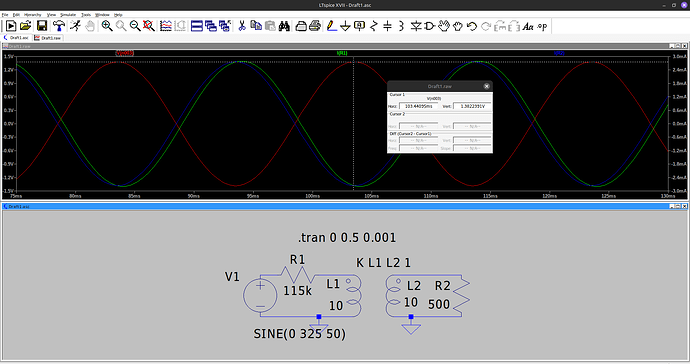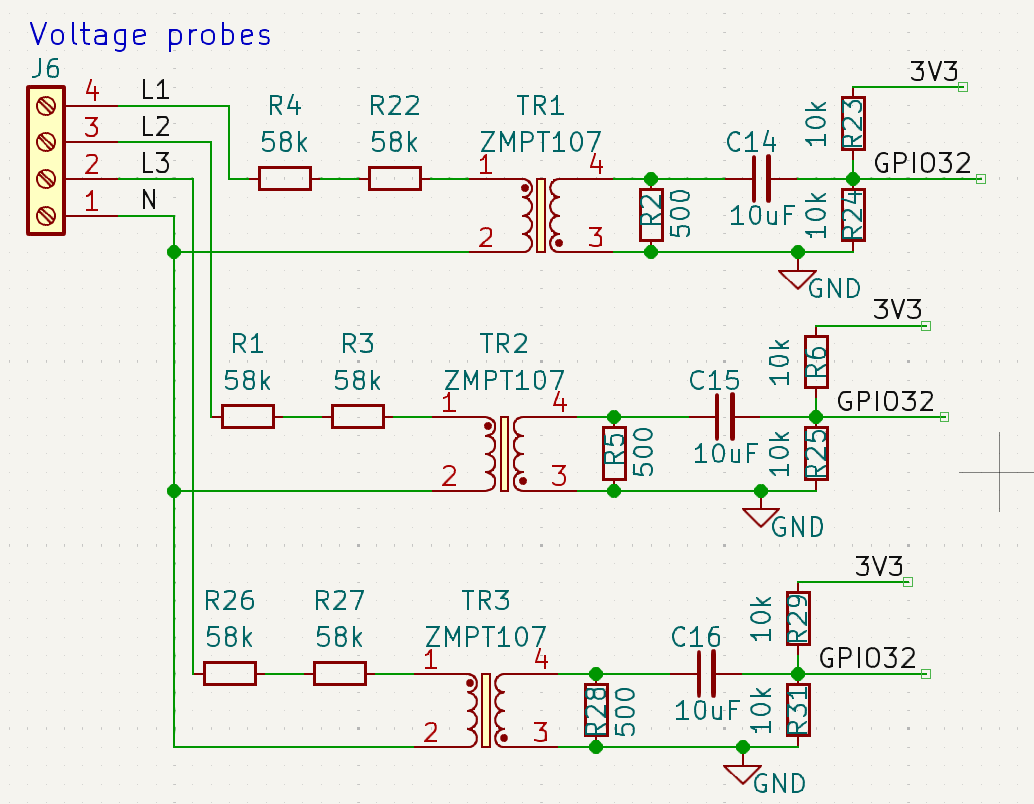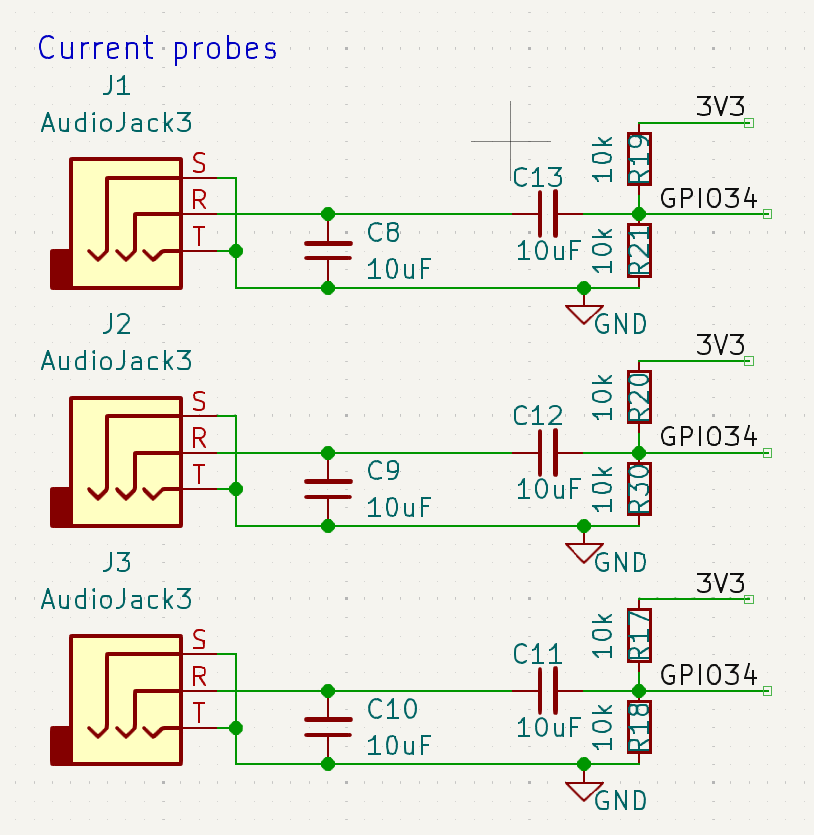Hi everyone,
Im trying to make a powermeter based on ESP32 using EmonLib.
I have read a few finished projects on this but the one that helped me the most was from Daniel since I want to measure 3 phases.
Im located in Czechia, that means 230Vrms for each phase (Brown, Black, Gray) with neutral wire (Blue) and separated ground PE (Yellow+Green)
For measuring voltage I chose ZMPT107-1 transformer with burden resistor.
Current measurements will be done through SCT-013-030 (30A/1V~).
Once I get the prototype calibrated and working I want to make a custom board in KiCad to fit in inside a standard DIN rail box, but thats a story for another day (more like another year, lol).
Right now I have my own schematic, Im waiting for the parts to arrive and I would like to just double-check a few things.
I calculated the burden resistor for ZMPT-107 as I have seen here:
U_1 = 230V, U_2 = 1V
R’ = U_1/(2mA) = 230/0.002 = 115 000 Ohm → 2x58kOhm resistors
R = (U_2/U_1) * R’ = (1/230)*115 000 = 500 Ohm
I took the currents and voltages as RMS values so I hope I got that right.
I even ran a quick simulation in LTspiceXVII and it looks okay.
Of course I added a 1.65V offset just as mentioned in the Docs.
To improve low current measurements I will be taking apart the SCT connector to properly connect the shielding and also add 0.1uF capacitor to filter out noise. Again the 1.65V offset was added.
I will be also adding a HDO detection, Im not sure how to translate HDO but it signalises the change between high and low tariff and its a separate 230V signal. I was thinking of using a capacitive divider with PC817 optocoupler but I have yet to decide that.
After reading a few posts here Im a bit skeptical about the ADCs in ESP32, does anyone have a recommendation on some 8 channel external I2C ADC?
Thanks in advance for all responses and advices I cant wait to dig deeper into this.


